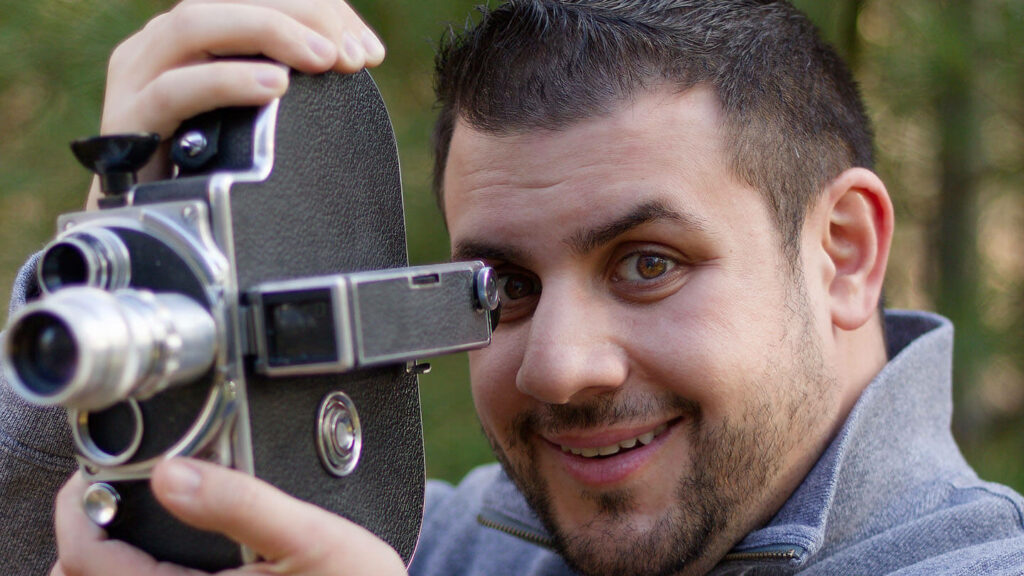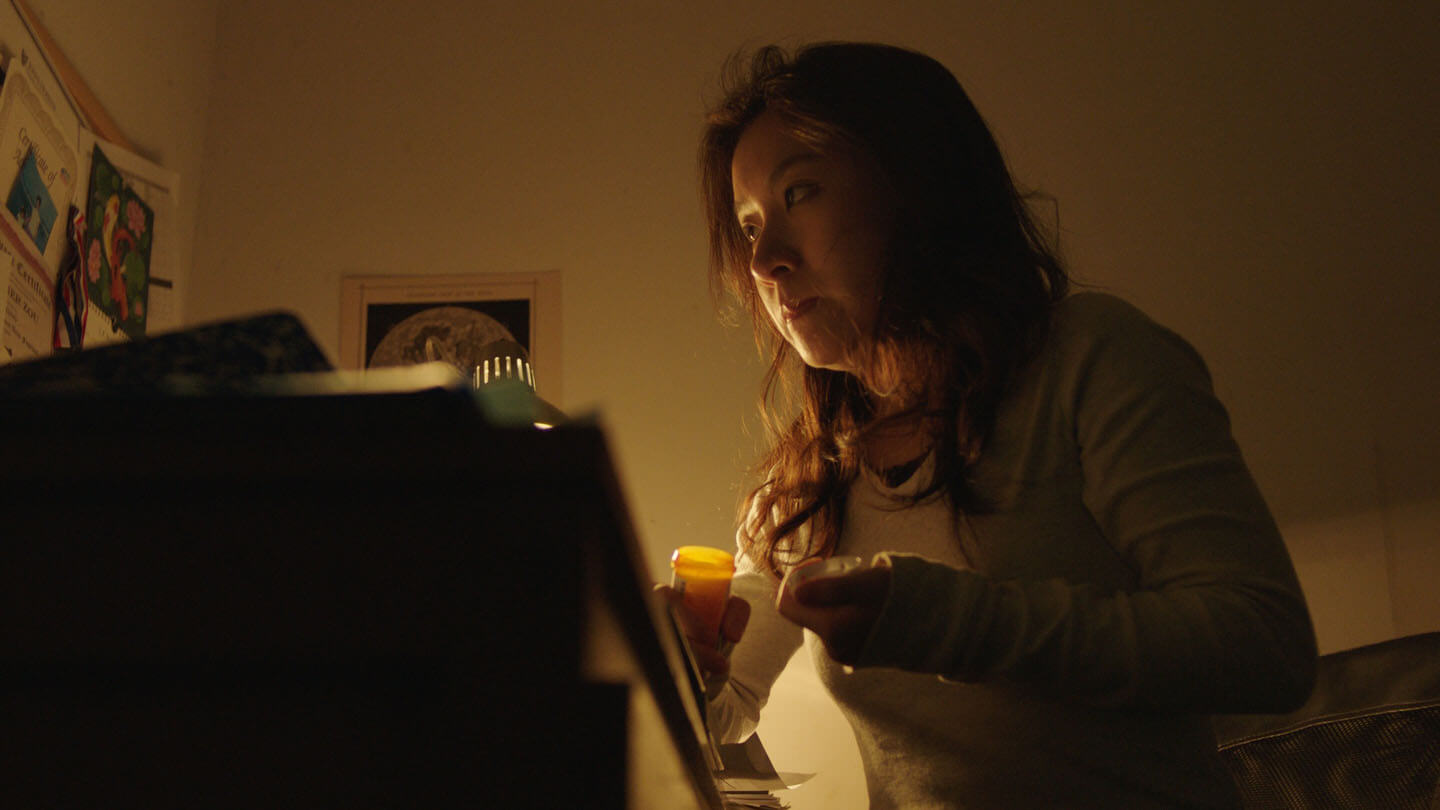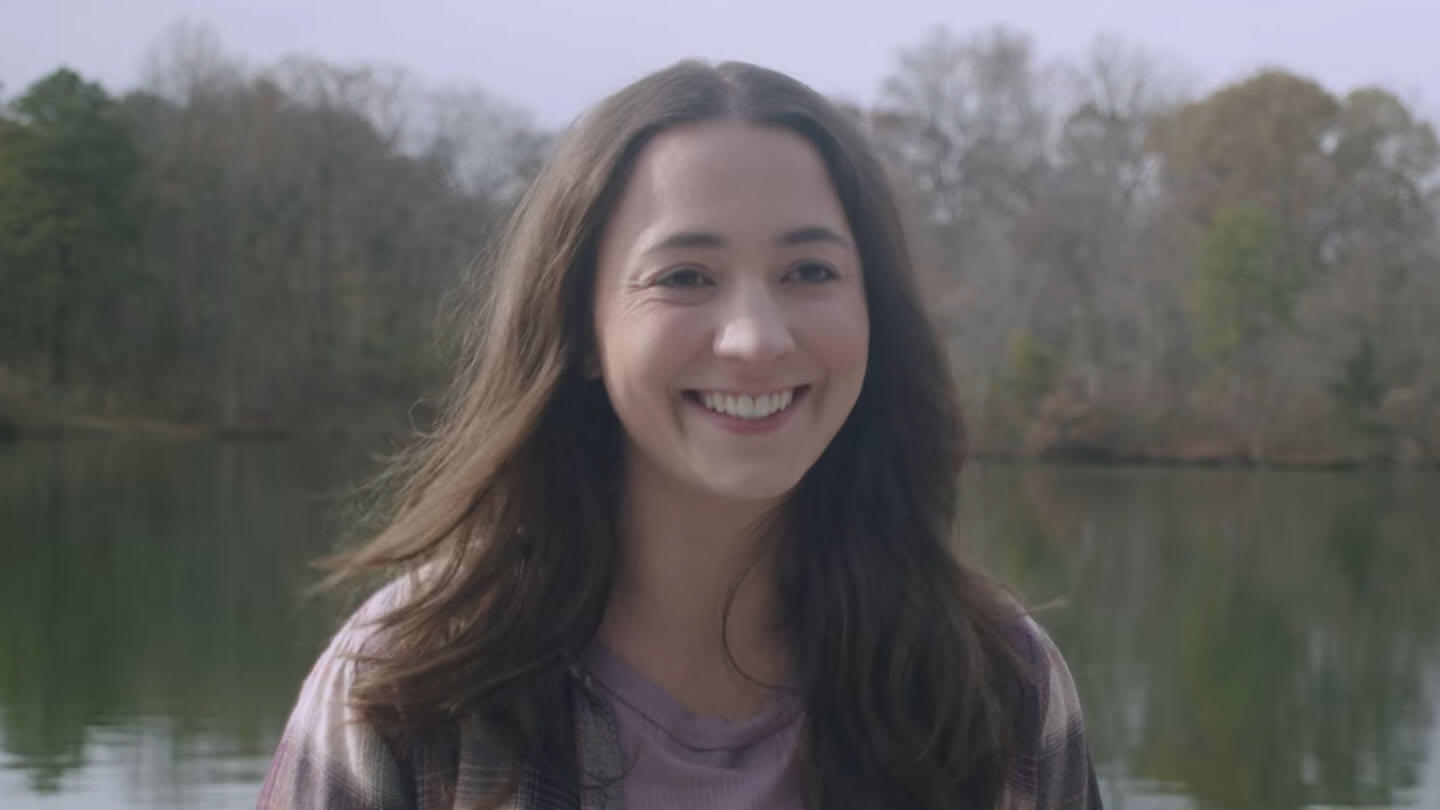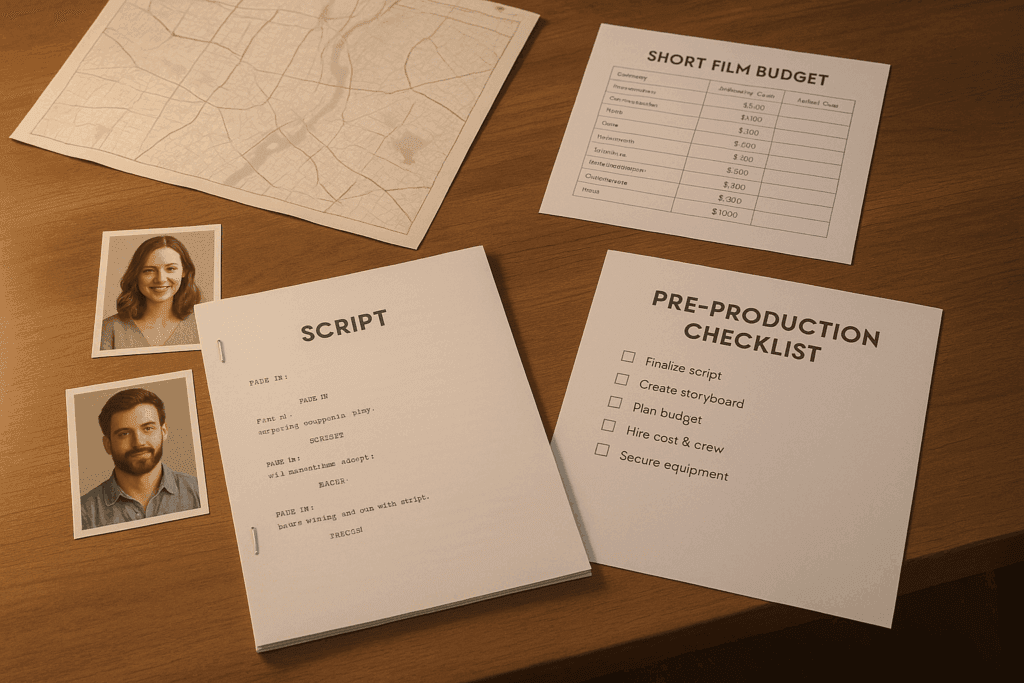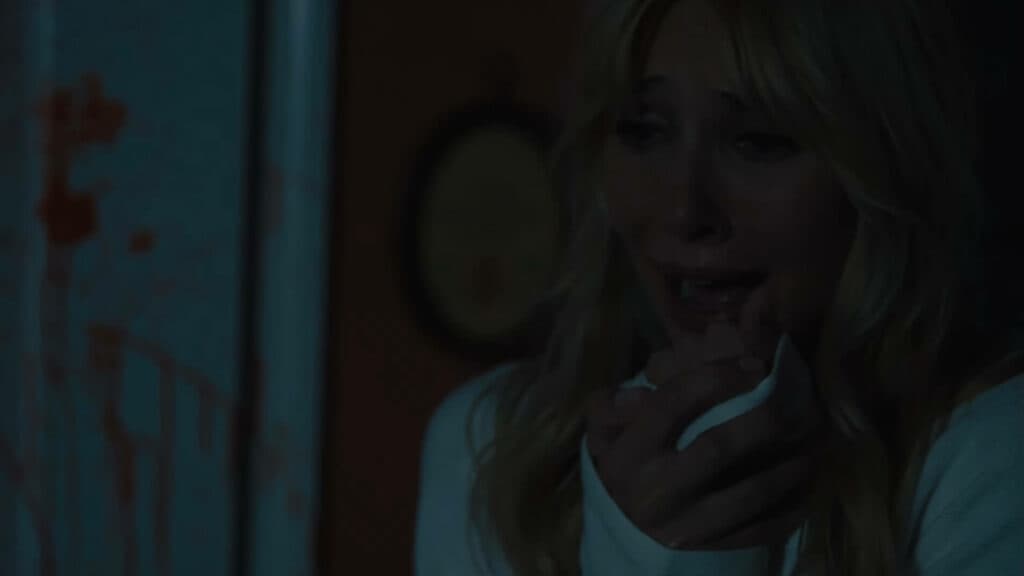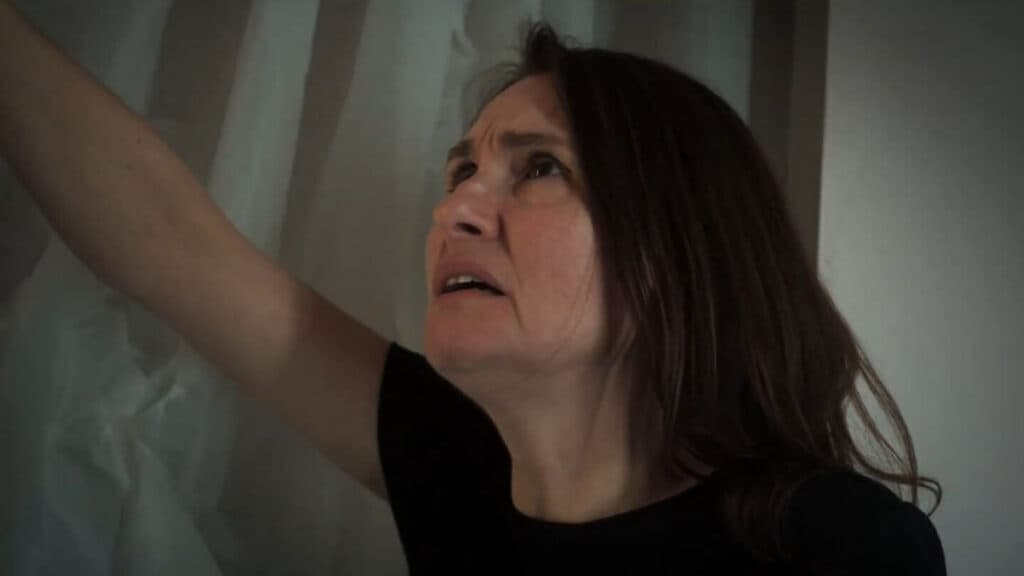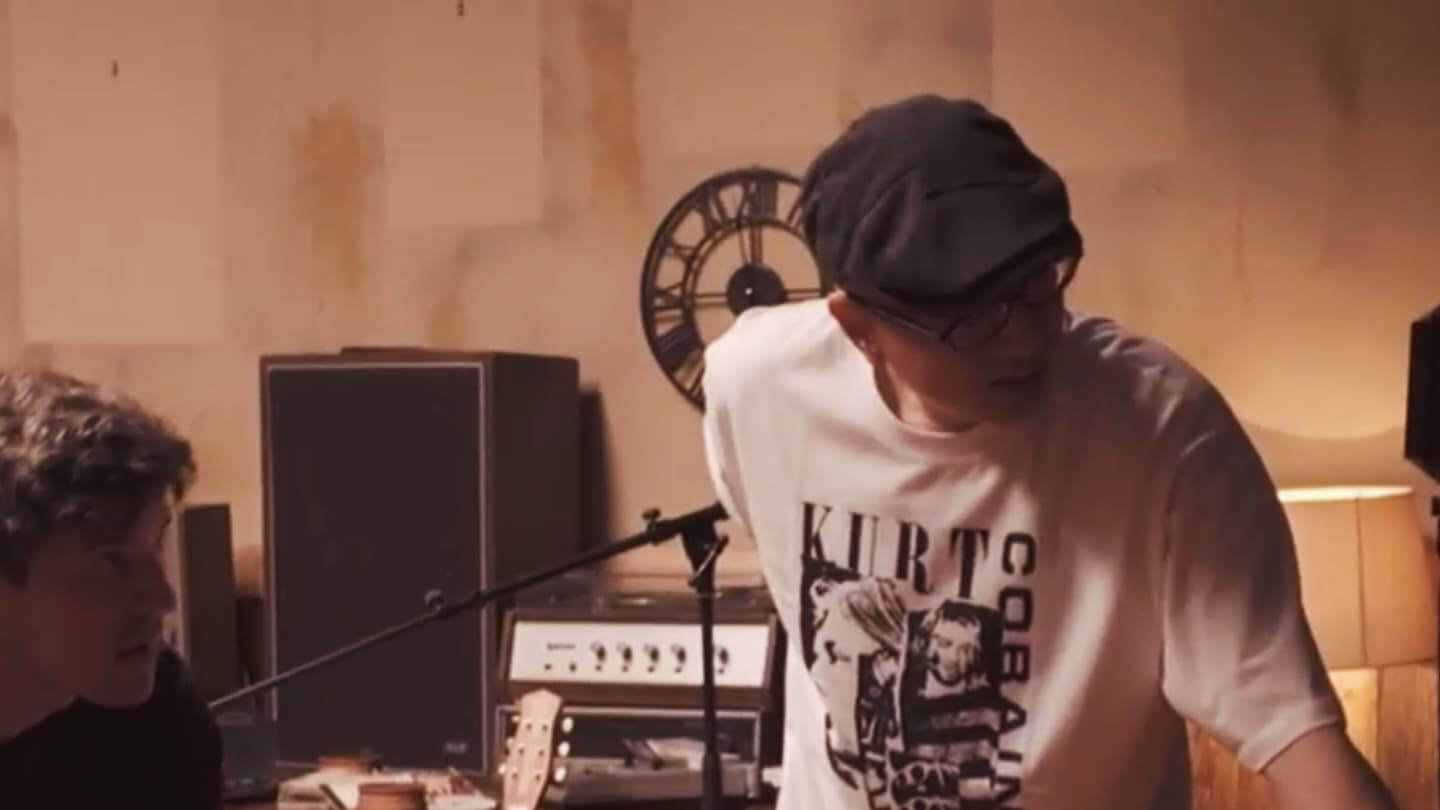Article too long to read?
In the world of indie filmmaking, few artists manage to capture the intricacies of the human mind and the delicate emotions that reside within as profoundly as Chris Esper. With a background enriched by personal experiences and a deep-seated passion for visual storytelling, Esper has directed several award-winning short films, each notable for their surreal imagery and poignant themes. From his early days with a camera in hand to the critical acclaim his films have garnered at festivals, Chris Esper’s journey as a filmmaker is a testament to his dedication and creativity. His latest project, Distant Memories, offers a unique and visual exploration of Alzheimer’s disease, bringing his personal encounters with the condition to the screen in a way that is both raw and authentic.
Chris Esper’s cinematic journey began in the realm of childhood curiosity and transformed into a profound career that spans numerous acclaimed short films. Based in Foxboro, MA, but with roots in New Jersey, Esper’s passion for filmmaking ignited in his youth and blossomed through his education at the New England Institute of Technology. His latest short, Distant Memories, visually represents Alzheimer’s Disease, a deeply personal project inspired by his grandparents’ struggles with the illness. Blending surreal imagery and a strong visual narrative, Esper continues to delve into the human condition with an authenticity that resonates with audiences worldwide.
Indie Shorts Mag: What inspired you to create Distant Memories, and how did you approach portraying Alzheimer’s Disease from a visual perspective?
Chris Esper: I had two grandparents, one on each side of my family, who succumbed to Alzheimer’s Disease. I was in my late teens into my early twenties when these occurred, so I’m not sure if I was mature enough to fully grasp what the disease does to you, but there were a few instances that stayed with me. For example, I can remember seeing my grandmother on my mother’s side be lucid and herself one minute and then suddenly not know where she was the next. It was very scary to witness.
As I developed my voice as a filmmaker, I found that I enjoyed using visuals and surreal imagery to represent the story I was telling. While I also enjoy writing dialogue, I find that my strong suit is visual storytelling. Additionally, movies are a visual medium first and foremost, and I wanted to make the most of that. I had seen and was inspired by several films when making this one, including Still Alice, Barney’s Version, and Amour. Still Alice and Barney’s Version, in particular, were about Alzheimer’s and are great films. Likewise, Amour, while not about Alzheimer’s, was also a beautiful film about ageing and caregiving. Those three films gave me some perspective on how to approach this. That being said, there have been a lot of films about Alzheimer’s and/or disease in general, and I was anxious to explore the concept in my own way. Rather than being in the outside world with the caregiver or reality, I was interested in what it feels like for the person afflicted inside their mind.
I found that I loved the idea of the mind being like an emptying void with shelves that serve as a timeline, or memory bank, with items from that person’s life. I also think everyone is a visual thinker, especially when it comes to memories and nostalgia. We tend to view memories in rose-coloured glasses. So, that’s why I decided to use VHS tapes and film reels as a way for the character to watch moments of her life.
Indie Shorts Mag: Your film Imposter won Best Short Thriller at the Rock the Shorts Film Festival in 2023. Can you share the creative process behind this project and what themes you wanted to explore?
Chris Esper: Much like Distant Memories, Imposter was also a visual piece. This time, I explored anxiety and the idea of Imposter Syndrome and did so with no dialogue. With that film, I wanted to explore the idea of how people suffer in silence and how we can’t see their pain.
Essentially, the story follows several characters who go about life with another younger self always attached to them, which serves as a reminder of their anxiety. For example, one of the lead characters is a businessman who has a young boy in a jester outfit as his counterpart to show how he often feels foolish when presenting himself at work.
Both Imposter and Distant Memories were done in collaboration with On Edge Productions, with my co-producers, Lisa Wynn and Tom Mariano, being at the helm. They’re both terrific to work with and were always great about helping shape both films into what they became with their ideas. Imposter, in particular, had some additional characters that Lisa came up with that helped to deepen the story further.
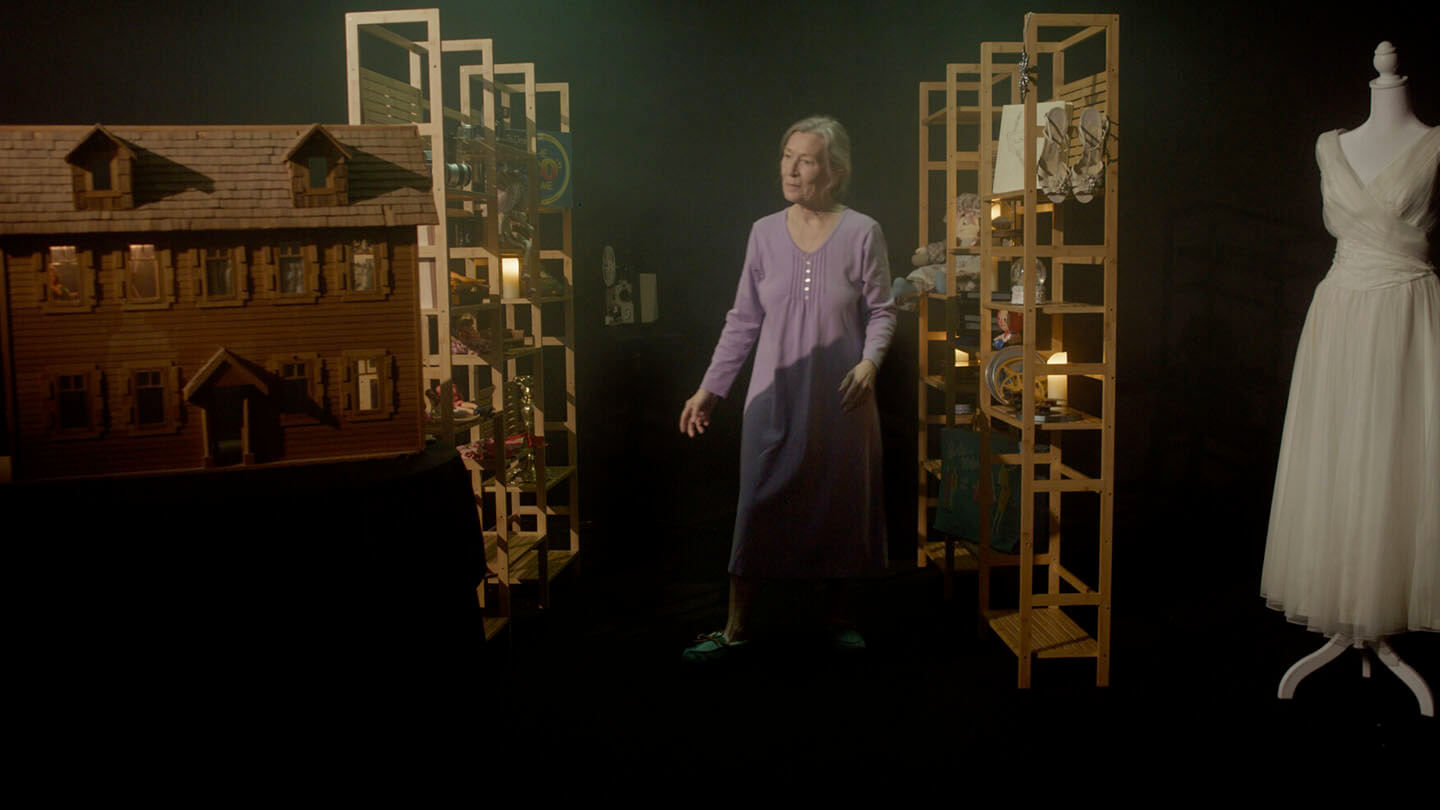
Indie Shorts Mag: Having directed award-winning films like Undertaker and The Deja Vuers, how has your filmmaking style evolved over the years?
Chris Esper: Both of those films were very different from each other, with Undertaker being a surreal Twilight Zone-like piece and The Deja Vuers being an absurd comedy. Despite their differences, they both share somewhat of a common element with Imposter and Distant Memories in that all of them have some form of surrealism. I found, over time, that became what I enjoyed the most in developing my style.
I have always found myself attracted to different ways in which one can tell a story, whether that’s by exploring different worlds or hypotheticals. I’m also attracted to humanistic themes and stories with characters that feel very familiar and relatable. So, I try to employ both those elements when making a film. What’s interesting about Undertaker and The Deja Vuers was that both were written by two different people, Kris Salvi and Jason K. Allen, respectively. Conversely, Imposter and Distant Memories were the ones that I wrote. So, even if I didn’t originate the concept or script, I always make sure I’m in love with the story in a way that speaks to my style.
Indie Shorts Mag: As the owner of Stories in Motion, how does running your own production company influence the types of stories you choose to tell?
Chris Esper: I would say the company gives me a brand of sorts. The name alone came from two things. Firstly, storytelling has been around since language existed, from verbally relaying stories to one another to hieroglyphics and eventually novels, theatre and cinema. Secondly, cinema got its start with the advent of the Nickelodeons. Those two aspects combined created cinema, which is essentially stories told with a moving image. I was fascinated by those two things, and I feel that they best represent what I do and where my heart is in filmmaking. I’m always looking for the story that best represents whatever I’m creating under the Stories in Motion banner, whether it’s a short film, a feature, a music video, a video for a small business, etc. Everything has a story. So, I think that, combined with having that creative freedom as a business owner, is what influences what I choose. Not to mention, that by doing the client work, it helps in raising a budget for my passion projects.
Indie Shorts Mag: Can you discuss the challenges and rewards of representing complex emotions and experiences, such as in Distant Memories and its focus on Alzheimer’s?
Chris Esper: The biggest challenge for me was being as real and authentic about Alzheimer’s. It had been a number of years since I had witnessed my grandparents face it. So, I had to brush up on my research and I also had a cast and crew who all, at some point and time, have had their own personal experiences and relayed them to me. All that helped in writing the dialogue scene with the main character speaking to her daughter. Emotionally, the ending was the most difficult scene to shoot. The main set piece inside the character’s mind, however, was probably the hardest piece to shoot, yet the most fun because we got to experiment with different angles and actions for Sissy O’Hara to do.
The reward, however, was screening the film for the first time and having audience members tell us about their own experiences in seeing a loved one face Alzheimer’s and how the film captured that. The icing on the cake, for me, was seeing Sissy’s performance being praised. She’s the heartbeat of the film so it made be very happy to see her get her deserved accolades.
Indie Shorts Mag: Your short screenplay Drunken Psychiatry received significant recognition. How does your approach differ when writing a screenplay versus directing a film?
Chris Esper: Writing has always been a little bit of a challenge for me. I find that I’m a very visual thinker and storyteller, so I find directing easier in one sense because I have a clear vision. On the other hand, directing can be difficult because you’re not alone. When you’re directing, you have 20 or more people on set to manage and who also have great ideas to contribute. When you’re writing, you’re alone, which is helpful in the sense that you have time to think but it’s also tricky because you don’t always know if what you had in mind is working. No one is there to bounce any ideas. So, for me, both writing and directing has opposite advantages and disadvantages.
When I’m writing anything, I tend to dive right into a ‘vomit draft,’ where I just write whatever comes into my head and sometimes I’ll make edits as I go. The goal is really to get it on the page. Then, I put it away for a while and maybe come back to it in the future to dial it in more,e either with an outline or by reading it and finding what’s missing. I find that my first drafts are more idea-based, and then when I go back in, I find my characters and what makes them tick and then I try to bring them into the world I already made. So, it’s sort of a slow birthing process. This is especially true when I’m writing a feature. With a short, I tend to be able to know exactly what I have in mind. Still, writing is hard because it can be slow and ponderous.
When I’m directing, I try to let the script be a blueprint and not the end all be all. I always allow actors to try things that are not in the script. Characters exist outside the written words, so if an actor finds something I didn’t consider, I’m always open to trying it out. Also, an actor may not agree with a piece of dialogue and feel their character may not say a certain statement, and that’s fine, too.
Indie Shorts Mag: What role does your background and education, such as your time at the New England Institute of Technology, play in your current work as a filmmaker?
Chris Esper: It plays a huge role, I would say. At New England Institute of Technology, my education ranged from video production, three-point lighting, commercial production, music production, documentary filmmaking and the like. So, it was a vast education, and that was invaluable. That being said, the best education is being on the set. I had interned and volunteered on local film projects during school quite a bit before I even made a film. Those real-world experiences taught me what to do and also what not to do. All of that was helpful as I grew as a filmmaker.
Indie Shorts Mag: With Distant Memories beginning its film festival run in 2025, what are your expectations for the film, and how do you hope it will impact audiences?
Chris Esper: I would hope that audiences find it emotionally engaging while also embracing the different view of the disease we tried to showcase. Perhaps even raise further awareness of the disease. So far, the critical reception has been wonderful, so my hope is that it continues to find its home with festivals and audiences.
Indie Shorts Mag: How do you balance creativity and storytelling with the technical aspects of filmmaking in your projects?
Chris Esper: That can be challenging as so many unforeseen factors can happen that can change your story or what you have in mind. For example, I may picture a dolly shot, but it can’t be done for some reason. Suddenly, the vision is not the same. So, in a situation like that you have to find a creative solution to have the same result. It’s not easy, but with a talented crew, you can take any situation and turn it around.
Indie Shorts Mag: Looking ahead, are there any upcoming projects or collaborations you’re excited about that you’d like to share with our readers?
Chris Esper: Yes, I have quite a few things in the works. I’m doing a short psychological thriller with a brilliant writer, Kris Salvi, who is a very talented actor and filmmaker in his own right. We’ve collaborated on a lot of projects together, so it will be good to direct one of his scripts again. I’m also in the process of writing several features that are in different stages of development. I’m hoping one of them gets off the ground within the year.
Looking to the future, Chris Esper’s boundless enthusiasm for storytelling ensures that he remains at the forefront of indie filmmaking. With upcoming collaborations and several features in development, his creative journey is far from over. Esper’s commitment to using his visual storytelling prowess to reflect on human experiences and emotions guarantees that his future projects will continue to captivate and inspire. As Distant Memories begins its festival run, audiences can look forward to more compelling tales from this extraordinary filmmaker who sees the world in frames of moving stories.
About the Author
No comments yet.
Got Something to add to this article?
Your email address will not be published. Required fields are marked *

